Opera Highlights
Programme
SUPPORTED BY THE FRIENDS OF SCOTTISH OPERA, JTH CHARITABLE TRUST & THE SCOTTISH OPERA ENDOWMENT TRUST
Welcome
Welcome to this special video production of Opera Highlights, filmed at the Beacon Arts Centre, Greenock.
Director Rosie Purdie (who last worked with us on Janáček’s The Diary of One Who Disappeared for the Lammermuir Festival) has put together a staging that takes a wry look at our socially distanced times, bringing together operatic favourites and seldom heard rarities in a captivating collection of arias and duets curated by Scottish Opera’s Head of Music, Derek Clark – who also introduces the music in his programme notes below.
We’re delighted, too, to be able to bring together the four outstanding young singers taking part in the Company’s 2020/21 Emerging Artists programme for this production. We’re proud of our Emerging Artists programme, which for more than a decade has offered invaluable performance and training opportunities to exceptional artists near the start of their careers. Unusually, this year’s participants – soprano Catriona Hewitson, mezzo-soprano Margo Arsane, tenor Shengzhi Ren and baritone Arthur Bruce – cover all four main voice types, offering some exciting opportunities over the months ahead.
Our Scotland-wide Opera Highlights tours are a regular and important part of our work: in 2019/20 alone, the two tours visited no fewer than 34 venues right across the nation. Following current guidance from the Scottish Government, we’re sadly unable to tour live Opera Highlights performances this Autumn in the way we had wished, but we hope that this specially recorded hour-long programme enables our audiences across Scotland – and beyond – to enjoy the production from the comfort of their homes until we're able to return to live performance on tour, as soon as it becomes possible to do so.
We’re grateful to the Friends of Scottish Opera for their continuing support of Opera Highlights, and we thank the Scottish Government for its ongoing core funding.
We all hope you enjoy this very special performance.
Alex Reedijk
General Director
Cast & Creative Team
Soprano
Catriona Hewitson
Scottish Opera Emerging Artist 2020/21
Mezzo-soprano
Margo Arsane
Scottish Opera Emerging Artist 2020/21
Tenor
Shengzhi Ren
Scottish Opera Emerging Artist 2020/21
Baritone
Arthur Bruce
The Robertson Trust Scottish Opera Emerging Artist 2020/21
Pianist
Susannah Wapshott
Director
Rosie Purdie
Music Directors
Jonathon Swinard and Susannah Wapshott
Musical programme
Derek Clark
Original narrative and script
Rosie Purdie
Director of Film Production
Antonia Bain
Director's Note
'I'm so pleased we are singing together again on the stage!’
This is the opening line in the script for our presentation of Opera Highlights. It’s a sentiment felt so deeply by all of us who have worked on this production for Scottish Opera, both on stage and behind the scenes, and we hope it will be shared by our audiences across Scotland and beyond.
After a long period without making music, four singers come together to sing a selection of arias and duets in a celebration of opera and live performance. The characters’ attitude to this premiere of sorts varies considerably. The soprano has been the driving force in its organisation and is determined that things should run smoothly. The baritone is a little more casual in his approach, much to the soprano’s annoyance. And the mezzo-soprano and tenor have found that absence does indeed make the heart grow fonder.
Creating and rehearsing a show in a world full of restrictions and guidelines has presented many challenges for us all. The design of the production is based on distance between the singers, which, despite being problematic in a traditional staging, has also created opportunities for new ideas. We’ve embraced the necessity of space and separation in an attempt to tell a story that we hope will resonate with performers, audiences and music lovers alike.
I do hope you enjoy this very special production as much as we have enjoyed creating and presenting it.
Rosie Purdie
Director
Programme
'Libiamo ne’ lieti calici’ (Brindisi) from La traviata
Giuseppe Verdi
‘Donne miei, la fate a tanti’ from Così fan tutte
Wolfgang Amadeus Mozart
‘Now I declare this is too bold’ (Letter Duet) from The Merry Wives of Windsor
Otto Nicolai
‘Una furtiva lagrima’ from L’elisir d’amore
Gaetano Donizetti
‘L’amour est un oiseau rebelle’ (Habanera) from Carmen
Georges Bizet
‘Pronta io son’ from Don Pasquale
Donizetti
‘Va! laisse couler mes larmes’ from Werther
Jules Massenet
‘Moi, je m’appelle Ciboulette’ from Ciboulette
Reynaldo Hahn
‘Laggiù, nelle nebbie remote’ from La Gioconda
Amilcare Ponchielli
‘Take my advice, when deep in debt’ (Roulette Song) from The Grand Duke
Sir Arthur Sullivan
‘Dein ist mein ganzes Herz’ from The Land of Smiles
Franz Lehár
‘Glück, das mir verblieb’ (Marietta’s Lied) from Die tote Stadt
Erich Wolfgang Korngold
‘Au fond du temple saint’ from The Pearl Fishers
Bizet
Korngold's Die tote Stadt by arrangement with Schott Music, Mainz
Nicolai's The Merry Wives of Windsor: English translation by Leonard Hancock
Notes on the programme
This Opera Highlights production has a narrative and characters of its own. However, for those who wish to know more, these notes by Derek Clark, Scottish Opera’s Head of Music, explain the original operatic contexts of the pieces you’ll hear.
Duet: ‘Libiamo ne’ lieti calici’ (Brindisi) from La traviata (1853)
Text: Francesco Maria Piave, based on La dame aux camélias by Alexandre Dumas fils
Music: Giuseppe Verdi
Alfredo: Shengzhi Ren
Violetta: Catriona Hewitson
This well-known drinking song introduces Alfredo Germont to Violetta Valéry, a Parisian courtesan with whom he has fallen madly in love, unaware that she is fatally ill. For now, though, all is happiness and delight as the pair toast together the delights of wine and love.
Aria: ‘Donne miei, la fate a tanti’ from Così fan tutte (1790)
Text: Lorenzo Da Ponte
Music: Wolfgang Amadeus Mozart
Guglielmo: Arthur Bruce
Guglielmo has, with little difficulty, seduced his friend Ferrando’s fiancée. In order to help pacify Ferrando’s anger, he nonchalantly explains that many women can be expected to behave in this manner, asking them why they return men’s loyalty to them with such infidelity. Such deeply un-politically correct sentiments are cloaked in a mock comic style, but this aria, despite being a great showpiece for baritone, is one of the reasons why Così fan tutte can nowadays leave a particularly bitter taste in listeners’ mouths.
Duet: ‘Now I declare this is too bold’ (Letter Duet) from The Merry Wives of Windsor (1849)
Text: SH Mosenthal, based on Shakespeare’s comedy. English translation: Leonard Hancock
Music: Otto Nicolai
Mistress Ford: Catriona Hewitson
Mistress Page: Margo Arsane
Nicolai’s opera still holds the stage in German-speaking countries, but in spite of its charming music remains something of a rarity elsewhere. In this duet, which forms the opening of the opera, Mistress Ford is aggrieved to receive a love letter from the elderly Sir John Falstaff, but is further aggrieved to discover her neighbour, Mistress Page, has received an identical letter. Together, these merry wives plot their revenge, using all the art they can muster to outwit the ‘Fat Knight’.
Aria: ‘Una furtiva lagrima’ from L’elisir d’amore (1832)
Text: Felice Romani, based on Le philtre by Eugène Scribe
Music: Gaetano Donizetti
Nemorino: Shengzhi Ren
The lovesick but shy farmhand Nemorino yearns for the seemingly unobtainable Adina, owner of the local farm, but when he suddenly comes into money, he becomes very popular with all the local girls. Noticing a tear in Adina’s eyes at the girls’ forward behaviour towards him, he realises that perhaps Adina does have feelings for him after all, and as a result says he would be happy to die. Fortunately he won’t have to, and a happy ending is just round the corner.
Aria: ‘L’amour est un oiseau rebelle’ (Habanera) from Carmen (1875)
Text: Henri Meilhac and Ludovic Halevy, based on the novella by Prosper Merimée
Music: Georges Bizet
Carmen: Margo Arsane
In this famous number, Carmen presents her views on love: it is unpredictable as a bird in flight; men may love her, but she will not necessarily love them back; and if she does, they should beware. If the hapless Don José had heeded her warning, he could have saved himself a lot of trouble, but then we would also have been deprived of one of the most popular operas we have!
Duet: ‘Pronta io son’ from Don Pasquale (1843)
Text: Giovanni Ruffini and the composer, based on Ser Marcantonio by Angelo Anelli
Music: Gaetano Donizetti
Norina: Catriona Hewitson
Malatesta: Arthur Bruce
Norina has been persuaded by Dr Malatesta to pretend to be his demure, convent-educated sister in order to dupe Don Pasquale into marrying her. Together, they discuss how she will play the part, and look forward to the fun they will have at Don Pasquale’s expense when she turns into a shrew after the wedding. It’s a cruel trick they intend to play on the old man, but Donizetti’s music makes us forget this with its humour and lively high spirits.
Aria: ‘Va! laisse couler mes larmes’ from Werther (1892)
Text: Édouard Blau, Paul Millet and Georges Hartmann based on The Sorrows of Young Werther by Johann Wolfgang von Goethe
Music: Jules Massenet
Charlotte: Margo Arsane
Charlotte is married to the dutiful but dull Albert. The poet Werther is deeply attracted to her, and when she sends him away, he writes passionate letters to her. Re-reading them brings the realisation that she returns his feelings, and when her sister, trying vainly to cheer her up, mentions his name, she breaks down completely. Tears can be therapeutic, she sings, but they will not save her love for Werther, which is doomed to end in his suicide.
Aria: ‘Moi, je m’appelle Ciboulette’ from Ciboulette (1923)
Text: Robert de Flers and Francis de Croisset
Music: Reynaldo Hahn
Ciboulette: Catriona Hewitson
If the name of Reynaldo Hahn is known at all nowadays, it is as the composer of some exquisite songs, which were immensely popular in the salons of Paris in the early years of the 20th century, as indeed was the composer himself. In 1921, however, he was asked to write an operetta, and the result was Ciboulette, which, though rarely performed nowadays, was an immense hit at the time of its first performances. This aria is the heroine’s entrance song in which she introduces herself and her name (which translates literally as ‘little chive’). She lists many popular French girls’ names, before telling us her own, which, she says, is clear and lively, and, most importantly, rhymes with ‘amourette’ – a point not lost on the local village lads…
Duet: ‘Laggiù, nelle nebbie remote’ from La Gioconda (1876)
Text: Tobia Gorrio (pseudonym of the librettist and composer Arrigo Boito)
Music: Amilcare Ponchielli
Laura: Margo Arsane
Enzo: Shengzhi Ren
This duet is a small oasis of calm in an otherwise complicated and highly dramatic plot, the details of which needn’t concern us here. Laura and Enzo hope to elope (she having been betrothed against her will to a much older man). On board Enzo’s ship, they look forward to their new life, though it will be two more acts before they can sail into the sunset together. It’s a pity that the opera’s most famous number, the celebrated ‘Dance of the Hours’ (used in the Disney film Fantasia) is the only part usually heard nowadays since it isn’t really representative of the high Romantic style of the rest of the score, which stands midway between Verdi and Puccini.
Song: ‘Take my advice, when deep in debt’ (Roulette Song) from The Grand Duke (1896)
Text: Sir William Schwenk Gilbert
Music: Sir Arthur Sullivan
Prince of Monte Carlo: Arthur Bruce
The Grand Duke was Gilbert and Sullivan’s final collaboration, and the least successful of the 14 pieces they wrote together. Gilbert’s plot was even more complicated than usual, and although at its best Sullivan’s music was as good as he ever wrote (in some numbers almost foreshadowing the style of Franz Lehár), it wasn’t enough on its own to redeem the piece, which languished in obscurity for most of the 20th century. The present song, extolling the merits of playing roulette, is sung, appropriately enough, by the Prince of Monte Carlo, who arrives in the middle of Act II to try to marry off his daughter to the titular Grand Duke. Sullivan, no stranger himself to Monte Carlo’s roulette tables, must have relished the chance to write this song, and gave it one of his catchiest melodies. Inexplicably, it was usually omitted from performances until comparatively recently.
Aria: ‘Dein ist mein ganzes Herz’ from The Land of Smiles (1929)
Text: Ludwig Herzer and Fritz Löhner-Beda
Music: Franz Lehár
Sou-Chong: Shengzhi Ren
After the great acclaim he received for The Merry Widow in 1905, Lehár spent the rest of his life trying, on the whole unsuccessfully, to recapture its success. He came nearest with The Land of Smiles, a somewhat sentimental tale of a Chinese Prince who falls in love with a girl from the West, mainly due to the inclusion of this song (often known in its English translation as ‘You are my heart’s delight’), and the presence in the original cast of star tenor Richard Tauber, for whom it was written. Tauber’s subsequent recording of the song helped keep the operetta alive for a time, but while the piece as a whole is not as popular as it once was, this song has become a firm favourite with tenors and their audiences.
Aria: ‘Glück, das mir verblieb’ (Marietta’s Lied) from Die tote Stadt (1920)
Text: Paul Schott (a pseudonym of the composer) based on the novel Bruges-la-Morte by Georges Rodenbach
Music: Erich Korngold
Marietta: Catriona Hewitson
The heady Romanticism of Korngold’s music is the perfect vehicle for this strange story of how dream and reality merge into one. Marietta, a dancer, bears an uncanny resemblance to the deceased wife of the opera’s hero, Paul, in whose tortured mind they become one. This song, which Marietta describes as ‘a song of love that must die’, marks the beginning of Paul’s infatuation with the dancer. Having sung a verse, and seen the effect it has on him, in the opera she provocatively invites him to join her in a second verse, but when the song is extracted from the opera, as here, she sings both verses herself.
Duet: ‘Au fond du temple saint’ from The Pearl Fishers (1863)
Text: Michel Carré and Eugène Cormon
Music: Georges Bizet
Nadir: Shengzhi Ren
Zurga: Arthur Bruce
Two friends in love with the same girl, but determined not to let that love interfere with their friendship – surely a recipe for disaster? The main protagonists in Bizet’s opera will find that friendship tested to the full before one of them has to sacrifice his life so that the other can find happiness. But the result is one of opera’s most famous duets, as popular now as it was at the time of its first performance more than a century and a half ago.
Scottish Opera Emerging Artists
This production’s four singers are all participants in the Company’s renowned programme for outstanding young artists – but what does it involve?
Opera is a competitive business – but more importantly, it’s also one that requires the very finest skills from its performers across singing, acting, movement and plenty more. To have a season-long position in an internationally acclaimed opera company early in their careers is something that many young singers dream of – and that’s precisely what Scottish Opera’s Emerging Artists programme offers.
Set up more than a decade ago, the programme aims to nurture outstanding young singers and other professionals through a variety of performance and training opportunities – some, like Opera Highlights, in front of an audience, but others, from specialist coaching and professional guidance, happening behind the scenes. And despite the pandemic-related uncertainty across the arts world, the Company has been determined to continue offering this period of full-time work to exceptional young artists at the beginnings of their careers.
And the Emerging Artists are very much not only singers: previous participants have included composers in residence Gareth Williams and Lliam Paterson, repetiteurs Michael Papadopoulos and Jonathon Swinard (who’s now the Company’s Chorus Master), and Elizabeth Salvesen Costume Trainee Jasmine Clark. But several singers who have taken part in the programme have gone on to international careers, including soprano Jennifer France, tenor Elgan Llyr Thomas and baritone Ben McAteer.
This year’s Autumn Opera Highlights performances – unusually – give audiences the chance to experience all four current Emerging Artists together. ‘It’s the first time we have representatives of the four main voice types – soprano, mezzo-soprano, tenor and baritone – which will make for some exciting opportunities as they embark on their programme with us,’ explains Scottish Opera’s Head of Casting, Sarah-Jane Davies.
Scottish baritone Arthur Bruce is beginning his second Season as The Robertson Trust Scottish Opera Emerging Artist, following earlier involvement in the Company’s Connect Ensemble for young people (now Scottish Opera Young Company). He appeared most recently in the acclaimed outdoor La bohème at Scottish Opera’s Production Studios. Scottish soprano Catriona Hewitson has already made her debut performance as a Scottish Opera Emerging Artist, performing in Janáček’s The Diary of One Who Disappeared, recorded for the Lammermuir Festival.
The remaining pair of Emerging Artists – French mezzo-soprano Margo Arsane and Chinese-born tenor Shengzhi Ren – both make their debuts in these Opera Highlights performances. Arsane is excited to be joining the programme: ‘I’m particularly looking forward to the variety of experiences I will gain as an Emerging Artist – which will give me the opportunity to work on the main stage with a team of international guest artists, and therefore gain valuable exposure in the industry.’ Ren believes he’s at the start of what he calls ‘a great journey’: ‘As a singer from the East, ever since I began my studies, it’s been my dream to sing and perform in a national opera company. I’m very honoured to have been chosen to join the Emerging Artists Programme at Scottish Opera, where I’ll have the opportunity to work with so many wonderful singers, conductors and directors.’
The Emerging Artists programme is kindly supported by: Scottish Opera's Emerging Artists Benefactors, The Robertson Trust & Elizabeth Salvesen.
Biographies
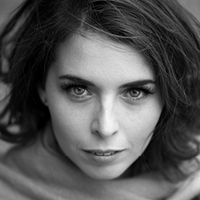
Margo Arsane – Mezzo-soprano
French mezzo-soprano Margo Arsane is a Scottish Opera Emerging Artist 2020/21, and also a member of the Lyon Opera Studio. She studied at the CNSMD Lyon, Munich’s University of Music and Performing Arts, London’s Guildhall School of Music and Drama, and the National Opera Studio. Among her prizes and awards, she won first prize at the 2013 Mozarteum Sommerakademie Wettbewerb, Special Prize at the 2014 Marmande International Singing Competition, and Young Hope Prize at the 2013 Concours International de Chant, Clermont-Ferrand.
Operatic engagements include: Child L’enfant et les sortilèges (Lyon Opera); Smeraldina/Linette The Love for Three Oranges (Lorraine National Opera); Page of Herodias Salome (Paris Philharmonie); Zaida Il turco in Italia, Rosina The Barber of Seville (Scherzo Ensemble); Sesto (cover) Julius Caesar (Opera North); Climene/First Love Les amants magnifiques by Lully (Le Concert Spirituel); Cherubino The Marriage of Figaro (Dartington Festival); Mélisande (cover) Pelléas and Mélisande (Garsington Opera); Concepción L’heure espagnole (Festival Pentecôte en Berry).
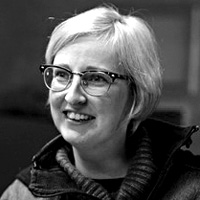
Antonia Bain – Director of Film Production
Scottish Opera’s in-house film-maker Antonia Bain studied fine art at Duncan of Jordanstone College of Art and Design. An internship with multimedia design company 55degrees led to a full-time role as content producer, and in that role she made several short films for Glasgow’s award-winning Riverside Museum. She has made short films, music videos and short documentaries. She joined Scottish Opera in 2015 and has produced promotional and cultural films for the Company’s social media and website. Highlights include creating a filmed performance of former Scottish Opera Composer in Residence Lliam Paterson’s piece In Glasgow, based on Edwin Morgan’s poem, and an opera/pop crossover with Scottish singers Be Charlotte and Carla J Easton as part of the BBC’s #OperaPassion Day. Her first opera short film for Scottish Opera, The Narcissistic Fish, can be watched on the Scottish Opera website.
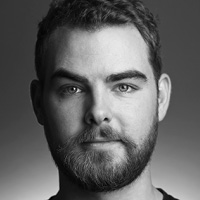
Arthur Bruce – Baritone
Scottish baritone Arthur Bruce is The Robertson Trust Emerging Artist 2020/21. He is a graduate of the Royal Conservatoire of Scotland’s Opera School, the Royal Northern College of Music, English National Opera’s Opera Works programme and Scottish Opera’s Connect Ensemble. He is a Britten-Pears Young Artist.
Scottish Opera appearances: Angus The Narcissistic Fish, Amadeus & The Bard, Opera Highlights Spring 2020, Schaunard La bohème.
Operatic engagements include: title role Gianni Schicchi (RCS Opera School); Papageno The Magic Flute (Berlin Opera Academy); Zurga The Pearl Fishers (Edinburgh Grand Opera); Guglielmo Così fan tutte (London Young Sinfonia); Wolfram Tannhäuser (Edinburgh Players Opera Group); Sam Trouble in Tahiti (RCS Opera School); Prince Yamadori Madama Butterfly (Bowdon Festival Opera).

Catriona Hewitson – Soprano
Catriona Hewitson is a Scottish Opera Emerging Artist 2020/21. Born in Edinburgh, she studied at the City of Edinburgh Music School, Manchester’s Royal Northern College of Music and the Opera Studio of London’s Royal College of Music. Among her awards, she won the 2018 Ferrier Loveday Song Prize. She is a Samling Artist and a Philip and Dorothy Green Young Artist 2018/20.
Scottish Opera appearance: Voice 1 The Diary of One Who Disappeared.
Operatic engagements include: Cis Albert Herring (The Grange Festival); Donna Rinaldo (Glyndebourne Touring Opera); Elsbeth (cover) Fantasio by Offenbach (Garsington Festival Opera); Sophie (cover) Werther (English Touring Opera); Susanna The Marriage of Figaro, Tytania A Midsummer Night’s Dream, Edwige Robinson Crusoe by Offenbach (Royal College of Music).

Rosie Purdie – Director
Rosie Purdie studied music at the University of Bristol and after graduating trained at the King’s Head Theatre in London.
Scottish Opera appearances as director: Zanetto and Susanna’s Secret, The Diary of One Who Disappeared.
She has worked as Director and Assistant Director in opera and theatre for companies and organisations including the Royal Opera House, Garsington Opera, Opera Holland Park,
English Touring Opera, Longborough Festival Opera, Royal College of Music, Royal Academy of Music, Barbican, Blackheath Halls Opera, Nuffield Theatre, British Youth Opera and Opera North.
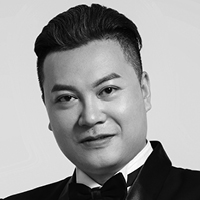
Shengzhi Ren – Tenor
Chinese tenor Shengzhi Ren studied at the Shanghai Conservatory of Music, and at London’s Royal Academy of Music and National Opera Studio. Among his prizes and awards, he won first prize in the 2016 International Singing Contest for Young People (Vocal) in Macau, first prize in the 2015 Golden Bell Awards, first prize in the 2010 National Singing Contest for Young People and Asian International Vocal Singing Contest (Hong Kong), and third prize and public award in the 2019 Neapolitan Masters Competition in Italy.
Among the operatic roles he has performed are Vaudémont Iolanta, Don José Carmen, Tamino The Magic Flute, Nemorino L’elisir d’amore and Borsa Rigoletto. He has also sung Prince Cinderella (Opera North) and Rodolfo La bohème (Welsh National Opera). Among his Royal Academy Opera Scenes performances are Belfiore Il viaggio a Reims, Fenton Falstaff, Ruggero La rondine, Alfredo La traviata and Rodolfo La bohème.
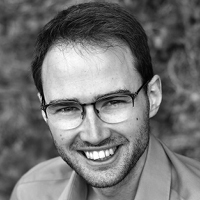
Jonathon Swinard – Music Director
Conductor and pianist Jonathon Swinard is Chorus Master at Scottish Opera and Head of Music at Garsington Opera. He studied at the University of Oxford and London’s Guildhall School of Music and Drama before beginning his career at Scottish Opera. He subsequently held the Alexander Gibson Choral Conducting Fellowship with the Royal Scottish National Orchestra Chorus before spending two years as Solorepetitor and Kapellmeister at Nuremberg’s State Theatre.
He has long been involved in the training of young singers. He spent six years on the Faculty of the Solti Accademia di Bel Canto and Lyric Opera Studio Weimar, and two years as the Artistic Director of the Scottish Opera Young Company, and he was Head of Music for the inaugural New Generation Festival in Florence. He is the Artistic Director of the Young Artists Programme at Garsington Opera and works regularly as a visiting vocal coach in the major UK music colleges.
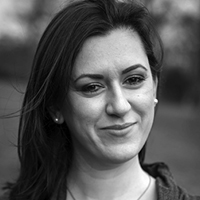
Susannah Wapshott – Music Director/Pianist
Susannah Wapshott is Associate Chorus Master and Repetiteur at Scottish Opera. She studied at Manchester University, the Royal Northern College of Music and the Royal Scottish Academy of Music and Drama, where she won accompaniment and repetiteur prizes. She made her conducting debut in 2009 with Orff’s Carmina Burana at the Edinburgh Festival Fringe.
She has worked for Scottish Opera since 2008, as Repetiteur, Assistant Conductor and Chorus Master on more than 40 productions. She was Assistant Conductor for Nixon in China, Kátya Kabanová, Greek, The Trial, Orfeo ed Euridice and Macbeth, and Music Director from the piano for small-scale tours of Carmen, La traviata, Rodelina and Macbeth, as well as Opera Highlights 2012. She was also Chorus Master for Rigoletto, Edgar, The Magic Flute, Silvano, The Marriage of Figaro, L’amico Fritz, Il trovatore and Orfeo ed Euridice.
She was Music Director of Edinburgh Grand Opera from 2014 to 2017, where she conducted The Pilgrim’s Progress, L’elisir d’amore and La bohème, and she is also Music Director of the Helensburgh Oratorio Choir. She has been selected as a Dallas Opera Conducting Fellow 2021.
Production Team
Touring Manager
Dawn Rawcliffe
Production Manager
Amy Wilson
Technical Stage Manager
Sam Ramsay
Deputy Stage Manager
Ali Biggs
Lighting Supervisor
Robert B Dickson
Costume Supervisor
Gloria Del Monte
Costume Maker
Danielle Durieu
Hair & Make-up Supervisor
Natalie Hargreaves
Sound Engineer
Douglas Martin
Camera Operators
Tom Armstrong
Antonia Bain
Scott Houston
Benny Robb
Online Content Technical Manager
David Manson
With thanks to everyone in the Scottish Opera team involved in making this production: our full staff listing is here.
Our thanks also go to all the staff and management at the Beacon Arts Centre for their kind support.
Support us
If you’ve enjoyed this production of Opera Highlights, and this digital programme, please help us to create the next Scottish Opera production by donating online today.
Looking for the film?
You can watch the full film on our website from World Opera Day, Sunday 25 Oct, at 6pm